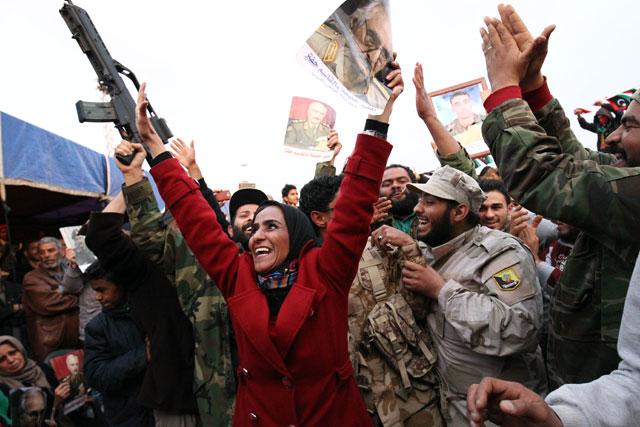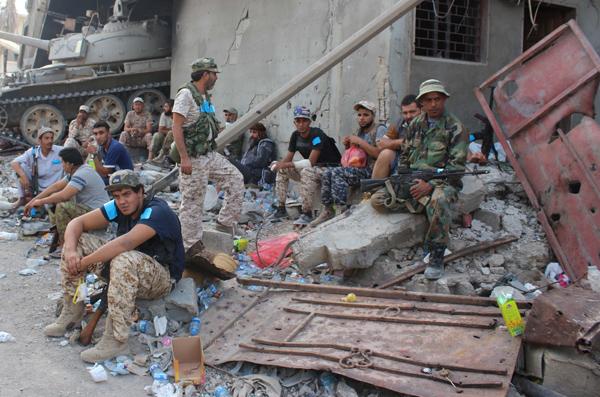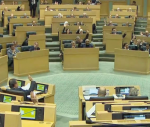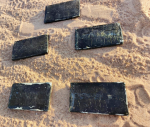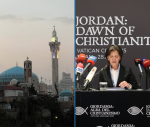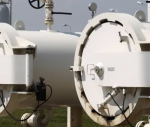You are here
East Libyan forces say they will investigate Benghazi abuses
By Reuters - Mar 21,2017 - Last updated at Mar 21,2017
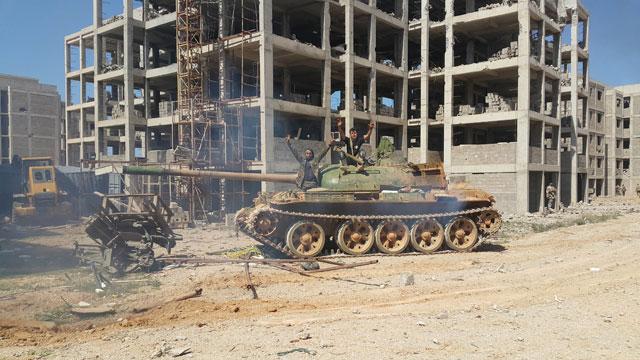
Members of eastern Libyan forces gesture as they sit atop a military vehicle after they captured the final holdout of Islamist-led rivals in the southwest of Benghazi, Libya, on Saturday (Reuters photo)
BENGHAZI, Libya/TUNIS — An eastern Libyan force says it will investigate abuses by its troops, after images showing the public display of corpses and allegations of summary killings surfaced following the end of a siege in Benghazi last week.
The self-styled Libyan National Army (LNA) said dozens of its Islamist-led opponents were killed as the siege at unfinished tower blocks in the eastern city was broken on Saturday when fighters and their families tried to escape.
Soon after, photos and videos emerged on social media appearing to show LNA troops posing with corpses and parading the rotting body of a prominent opponent on a vehicle.
Eastern military figures, separate from internationally recognised officials in Tripoli in the west, present the LNA as an expanding and increasingly capable force that will eventually control the whole of Libya.
The LNA’s general command called on unit commanders to hand over all those filmed carrying out abuses to the military police, for questioning by a military committee.
“The actions carried out by members of the Libyan National Army after the liberation of west Benghazi are considered individual acts and do not represent the instructions of the army,” it said in a statement late on Monday.
“Those who committed these violations will be held accountable for their actions and for not following military law.”
The suspected abuses raise fresh questions over the coherence of the LNA as a professional fighting body.
Its leader, Khalifa Haftar, is widely assumed to be seeking national power. He has spurned a UN-backed government in Tripoli that has sought to unify political and armed factions that splintered into rival camps in the east and west in 2014, three years after the uprising that overthrew Muammar Qadhafi.
The LNA’s critics say it is a loose collection of armed groups with fickle loyalties and little discipline, similar to the militias operating in western Libya.
They point to its slow progress in Benghazi, where it launched an operation against Islamists and other opponents nearly three years ago, but still faces pockets of resistance.
This month the LNA suffered a setback southwest of Benghazi, losing control of two oil ports before regaining them 11 days later.
It says it is now pursuing its opponents, who it accuses the UN-backed government of supporting, in the desert region of Jufra, whilst also preparing to “liberate” Tripoli from the militias that control it.
The offensive in Jufra and the LNA’s stated intention of taking control of the Tamanhent air base risks triggering renewed fighting between the LNA and forces from the western city of Misrata, which control the base.
It comes as some of Misrata’s armed groups, which became powerful during the 2011 uprising and the conflicts that followed, have come under pressure in Tripoli where they have lost ground to local rivals and faced popular protests.
UN Libya envoy Martin Kobler warned on Monday of a “dangerous escalation across Libya emanating from the deteriorating security situation in Tripoli and events in Misrata and Benghazi”.
“I call for all parties to put Libya and the unity of Libya ahead of their own narrow interests. The violence, hate speech, and mutilation of corpses in Libya is completely unacceptable.”
Related Articles
BENGHAZI, Libya — Libyan forces loyal to eastern-based commander Khalifa Haftar said they had taken the strategic military base of Jufra on
BENGHAZI, Libya — East Libyan forces said they captured the final holdout of Islamist-led rivals in the southwest of Benghazi on Saturday, e
BENGHAZI, Libya — At Benghazi University, graduation pictures shot at a wrecked campus symbolise hope for a return to normality in the city


